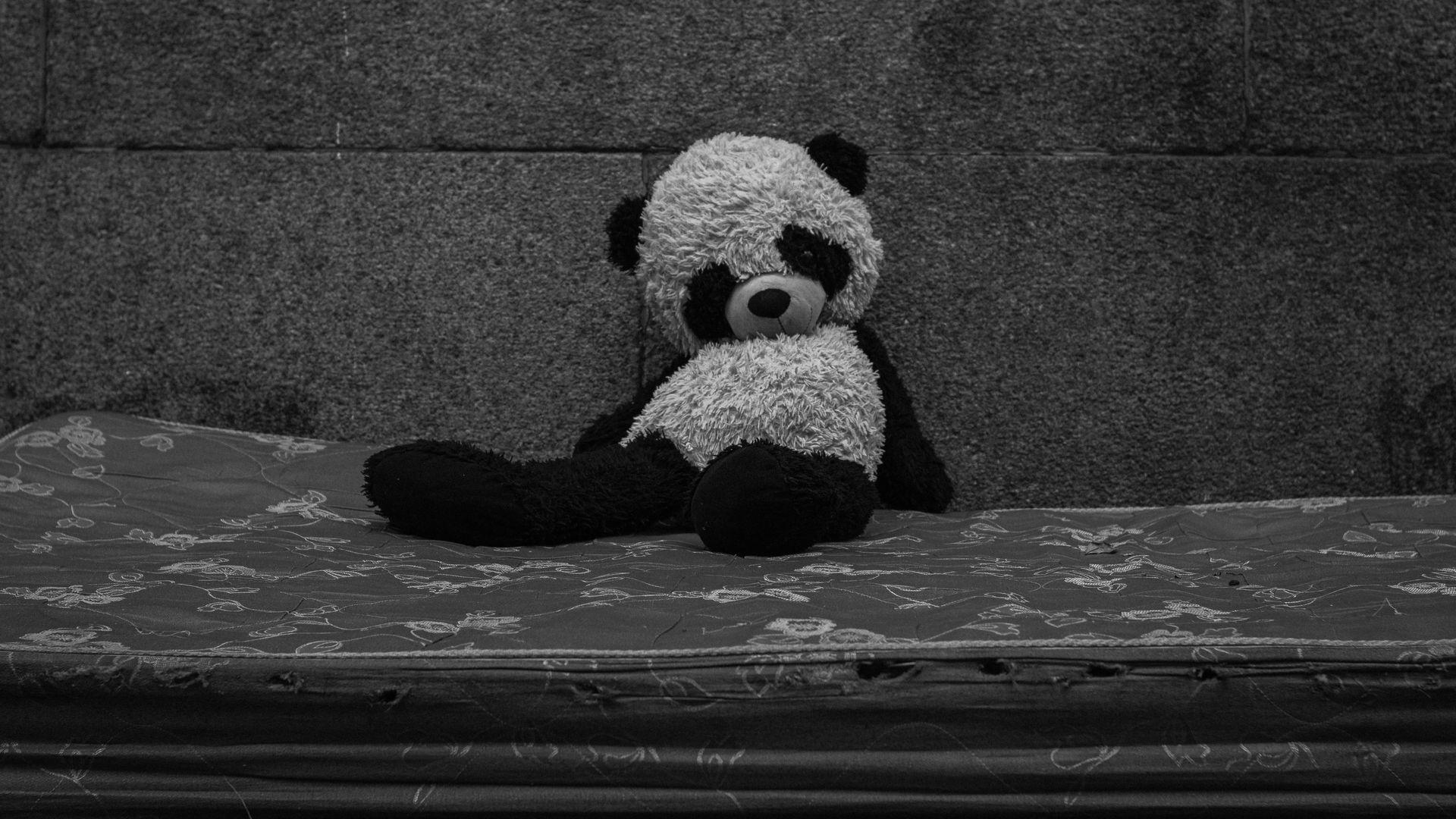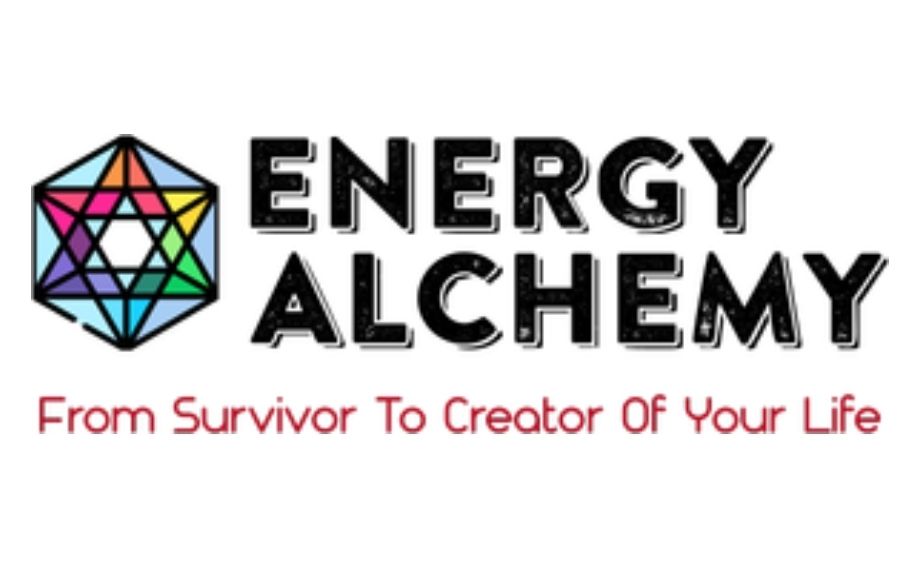Navigating Emotional Neglect — The Invisible Wound
Melanie Simon | Energy Alchemy
Healing From What Wasn't There

After leaving my last relationship 3 years ago, I declared it would be my last of a string of dysfunctional relationships — starting me on the path to healing. Since then, I’ve ridden the roller coaster of getting to the root of my struggles in relationships and with emotional regulation. I intend to help you streamline this process.
At first, my deep rooted shame told me “my childhood wasn’t traumatic, I was just a bad kid”. Over time I’ve worked on unbinding that shame identity. Allowing myself to see the entirety of the situation. Which in the short term felt more painful than believing there was simply something wrong with me. I was then able to explore further into the reasons behind why I started running away from home at 13.
The reality is, people with emotional neglect stories often don’t realize they’ve experienced trauma. According to Jonice Webb PhD, Running on Empty, up to 80% of emotionally neglected adults don’t identify their childhoods as traumatic—yet struggle with low self-worth, people-pleasing, or disconnection. The goal of this post is to help you identify emotional neglect and understand its impact in order to begin the healing process.
Emotional neglect is the
failure to meet a child’s emotional needs—not through overt abuse, but by consistently ignoring, dismissing, or minimizing a child's feelings, thoughts, or emotional experiences.
It is so hard to identify because emotional neglect is not about what happened to you. It’s what didn’t happen, but should have. It’s about certain needs every child has—emotional. Needs that you didn’t even know you had, not being met by your caregivers. So you end up going through life with this void that is hard to pinpoint its origin, and also seems impossible to fill. This is usually where addiction lives.
I remember as a child feeling so sad, so empty, so alone. With my emotional experience being criticized and invalidated, and with all of my physical needs being met, my child's mind internalized that something was just fundamentally broken inside of me. As these big feelings would manifest, it just pushed my caregivers further away.
Experiencing emotional neglect meant that you didn’t get the
emotional validation, attunement, and comfort you needed to feel safe, seen, and worthy. According to Harvard Health, emotional neglect is linked to
increased inflammation and physical illness. Chronic emotional suppression from neglect is associated with
higher cortisol levels, which can lead to
autoimmune disorders,
chronic fatigue, and
digestive issues.
💔 What Emotional Neglect Looks Like
- Parental Unavailability:
- Parents who are physically present but emotionally absent
- Preoccupied, stressed, depressed or addicted
- Lack of consistent emotional support or validation
- Dismissing or Minimizing Emotions:
- “Don’t be sad,” “You’re too sensitive,” “There’s nothing to cry about.”
- Failure to acknowledge or teach emotional regulation
- Lack of Emotional Education:
- Not teaching children how to identify, express or manage feelings
- Avoidance of discussion about feelings
- Ignoring Needs (Beyond Basic Care):
- Meeting physical needs but neglecting the need for connection, understanding and affection
- Children feeling unheard or invisible
- Perfectionism/High Expectations Without Support:
- Focus solely on achievement, with little attention to emotional toll or struggles
- Being praised for being “so independent” when it came from necessity, not choice
🌱 The Silent Scars: Impact of Emotional Neglect into Adulthood
Emotional neglect can have a profound impact on a child’s development in all areas—physical development of the brain and nervous system, their mental health, their emotional literacy and regulation, plus their social health and ability to form and maintain healthy relationships.
Emotional neglect can shrink key areas of the brain. As reported by Teicher et al., Biological Psychiatry, MRI research reveals reduced size in the hippocampus and prefrontal cortex—areas responsible for emotional regulation and memory—in individuals with childhood emotional neglect. Lastly, the National Child Traumatic Stress Network states that nearly half (48%) of adults with mental illness report childhood emotional neglect.
What you could be experiencing now:
- Difficulty with Emotional Expression
- Feeling numb or disconnected
- Struggle to identify and articulate feelings (alexithymia)
- A strong predictor of alexithymia—studies showing a correlation of 0.72, one of the highest among all forms of childhood adversity
- Low Self-Esteem or Self-Worth
- Feeling inherently flawed or “not enough”
- Self-blame and excessive self-criticism
- Relationship Challenges
- Difficulty forming deep, trusting connections
- Fear of intimacy or abandonment
- Choosing partners who are also emotionally unavailable
- Difficulty communicating needs in relationships
- Perfectionism and People-Pleasing:
- Overcompensating to gain approval
- Setting impossibly high standards for oneself
- Anxiety and Depression:
- Chronic feeling of unease, sadness, or emptiness
- Difficulty finding joy or purpose
- Lack of Self-Knowledge:
- Unsure of one’s own desires, opinions, or identity
- Feeling Invisible or Unseen:
- A pervasive sense that one’s presence doesn’t truly matter
I began 'joking' that my nervous system was broken when I started fainting in elementary school. I was told my entire life my complexity of seemingly unrelated symptoms were all manifestations anxiety. Only recently was I diagnosed with dysautonomia—a condition where the autonomic nervous system (ANS) doesn't work properly. This system controls involuntary functions like heart rate, blood pressure, and digestion. Complex trauma (CPTSD) can have a profound and long lasting impact on the nervous system.
🧠 How Emotional Neglect Affects the Nervous System
- Chronic Activation of the Stress Response
- Without emotional support, children often stay in fight, flight, or freeze mode
- This causes the sympathetic nervous system to be overactive, keeping the body in a constant state of alert—even in safe environments
- Underdeveloped Parasympathetic Response (Rest + Digest)
- Neglected children may not learn how to self-soothe or co-regulate with safe adults
- This weakens the vagal tone, making it harder to return to a calm, regulated state after stress
- Cortisol Overload
- Chronic stress from emotional neglect can lead to excess cortisol, the stress hormone
- Long-term cortisol dysregulation damages areas of the brain like the hippocampus (memory) and prefrontal cortex (decision-making)
- Disconnection from Body Signals
- The nervous system learns to ignore or suppress internal cues (like hunger, fatigue, fear)
- This disconnect (called interoception dysfunction) leads to emotional numbness or difficulty recognizing needs
- Increased Sensitivity to Rejection or Conflict
- The amygdala becomes hypersensitive to perceived threats—especially social or emotional ones
- Even small triggers (e.g., someone’s tone or silence) can set off panic or withdrawal
- Chronic Nervous System Dysregulation in Adulthood
- Many adults with emotional neglect live in a loop of hypervigilance, shutdown, or people-pleasing.
- This creates symptoms like:
- Anxiety and overthinking
- Emotional numbness
- Difficulty sleeping
- Digestive issues
- Trouble relaxing, even in calm settings
✨ The Good News:
The nervous system can heal through safety, connection, and regulation.
Tools like:
- Somatic healing
- Breathwork
- Inner child work
- Polyvagal practices
- Therapeutic relationships
can begin to rewire these patterns.
❤️🩹 Healing from Emotional Neglect: A Path Forward
The first step in healing is recognizing your experience and validating whatever feelings arise. This may seem weird at first, or even difficult, especially if your feelings have been invalidated your whole life. It’s okay to feel the pain, and it’s necessary in order for healing to take place. Feeling your feelings, in and of itself, will not physically harm you—even though it feels like it—but suppressing them can cause serious damage. It's important to remind yourself through this process that this was not your fault.
Work on improving your emotional literacy in order to process your emotions. Learn to identify and name emotions as they arise, without judgment. I’ll add a link in the resources to access the feelings wheel, which can be a helpful tool at this step.
Also, keeping a journal and writing down your thoughts, feelings and sensations in the body when big feelings (positive or ‘negative’) arise can retrain your attention to start listening to your body again—and therefore intuition. Journaling can also help you identify what things trigger certain feelings within you. Think of triggers as opportunities. They act like a ‘X marks the spot’. Pinpointing where your healing efforts can be focused.
Self-compassion is a must on this path to uncovering your deepest wounds. Treat yourself with kindness and understanding. Catch the negative self-talk and challenge it. Every time you do it’s a win. Every time you rewire your brain for safety and self-acceptance.
Please seek support through a trusted friend, uninvolved family member, or support group. One option, that I will link for you in the resources, is Adult Children of Alcoholic and Dysfunctional Families (ACA). Therapy can be incredibly beneficial either individually or in a group. You’ll want to look for therapists specializing in trauma, specifically CPTSD if possible, or attachment—keep an eye out for an upcoming blog on attachment styles.
I wasn’t allowed to have boundaries as a child. Consequently I never learned how to set them in any of my following relationships—leading to a lot of dysfunction. Learn about healthy boundaries and how to set them with others, as well as yourself. Remember that you and your own emotional needs are the priority. Even with children, which I know is hard. We can not completely self-sacrifice. We can’t pour into them from an empty cup. What message are we then sending and modeling to them? That other people’s needs come before our own. We can stop perpetuating the problem.
🫚 Why Does It Happen? Understanding the Roots
- Generational Patterns:
- Parents who experienced emotional neglect themselves may unknowingly perpetuate the cycle
- Lack of Awareness:
- Parents simply don’t know how to respond to emotional needs
- Stress and Overwhelm:
- Parents dealing with their own trauma, financial hardship, mental health issues, or demanding careers may have limited emotional bandwidth
- No Malice Intended:
- It’s rarely intentional malice, but rather an absence of something crucial
Awareness is the first step, but does not bring healing on its own. We then are provided the opportunity to re-parent ourselves—resource our own inner parent and give our inner child what it desperately needed, but didn't receive in childhood. Give yourself emotional care and validation. Engage in activities that nurture your inner child. Practice mindfulness and self-awareness to be present and attuned to your inner state. This will transition into being more present and attuned in your relationships, especially with your children. This is generational healing. This is how we break the cycle.
🌿 Conclusion: A Journey of Discovery and Growth
Teal Swan refers to this time in history as 'The Emotional Dark Age'. Acknowledging and accepting that emotional neglect was a part of my story served as a pivotal point in my healing. Emotional neglect is a pervasive, yet often unacknowledged, issue. However, a beautiful opportunity exists for healing. Leading to greater emotional freedom, healthier relationships, and a more fulfilling life.
I invite you to reflect on your own experiences, seek support when needed, and begin your healing journey. Addressing emotional neglect is a profound act of self-love that many people will spend their entire lives running and distracting themselves from. I applaud you for taking this courageous step towards a healthier, more fulfilling future for yourselves—and potentially generations to come. I see your strength and willingness to heal, and I am so proud of you! 👏
With Love and Encouragement on your journey,
xx Melanie
Founder | Energy Alchemy ✨
🔗 Resources:
- Learn more or find a meeting at Adult Children Of Alcoholics and Dysfunctional Families
- www.adultchildren.org
- Use the Feelings Wheel to help you identify your emotions
- www.feelingswheel.com
- YouTube Videos
- Emotional Neglect: Healing From The Hidden Trauma Of What Didn't Happen - Heidi Priebe
- 9 signs YOU experienced childhood emotional neglect - Katie Morton
- Emotional Wake Up Call - Teal Swan
- I am Safe, I am Supported, I am Protected Affirmations; Root Chakra / Trauma / Anxiety Healing - Unlock Your Life
- Suggested BOOKS—with affiliate links:
- Attached: The New Science of Adult Attachment and How It Can Help You Find--and Keep--Love
- By Amir Levine MD and Rachael Heller MA
- https://amzn.to/4lwC6th
- Shadows Before Dawn: Finding the Light of Self-Love Through Your Darkest Time
- By Teal Swan
- https://amzn.to/4kexGWG
- The Anatomy of Loneliness: How to Find Your Way Back to Connection
- By Teal Swan
- https://amzn.to/4lqWjjZ



